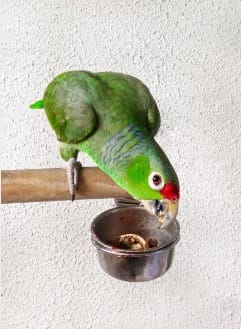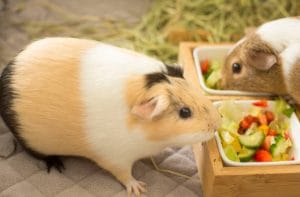Best Protein Sources for Small Pets

Best Protein Sources for Small Pets: A Complete Guide to Keeping Them Healthy. When it comes to keeping our small pets happy and healthy, their diet plays a huge role. Just like us, they need the right balance of nutrients to thrive—and protein is one of the most important pieces of the puzzle. Whether you’ve got a curious hamster, a soft and snuggly rabbit, or even a lively little bird, ensuring they get the right amount of protein is key to their energy, growth, and overall health. So, let’s dive into the best protein sources for small pets and how to tailor their diets to keep them thriving!
Why Protein Matters for Small Pets
Protein isn’t just for bodybuilders or high-energy dogs—it’s a must for small pets, too! It helps with muscle development, tissue repair, and keeping their immune systems strong. But not all small pets have the same protein needs. A guinea pig’s diet is going to look very different from a carnivorous reptile’s.
Understanding your pet’s dietary requirements is step one. Herbivores, like rabbits and guinea pigs, get their protein from plants, while omnivores, such as hamsters, can enjoy a mix of plant-based and animal-based proteins. And then there are the carnivores, like some reptiles, who rely heavily on meat or live insects to get their fill.
Natural Protein Sources for Herbivorous Pets
If your pet’s diet is all about plants, don’t worry—there are plenty of ways to pack in some protein. Herbivores, such as rabbits, guinea pigs, and chinchillas, thrive on these natural protein sources:
-
Leafy Greens: Kale, spinach, and dandelion greens are packed with nutrients and are safe for most herbivores.
-
Legumes and Seeds: Lentils, peas, and alfalfa are excellent protein-rich options for variety in their diet.
-
Hay and Grass: High-quality Timothy hay or orchard grass doesn’t just keep their digestive system running smoothly—it also provides protein and fiber.
Pro tip: Always make sure fresh veggies and greens are washed thoroughly before serving them to your little buddy.

Best Protein Sources for Small Pets
Safe Protein for Omnivorous Pets
For omnivores like hamsters, some birds, and even certain lizards, you can get creative with their protein sources. These guys can enjoy a mix of plant- and animal-based proteins, which gives you lots of flexibility:
-
Cooked Eggs: A small piece of hard-boiled or scrambled egg (no salt or seasoning) is a great protein boost.
-
Insects: Mealworms, crickets, or even freeze-dried insect treats are favorites for many omnivorous pets.
-
Cooked Lean Meat: Tiny amounts of plain, cooked chicken or fish can work for pets that tolerate animal-based protein.
When feeding animal proteins, remember: moderation is key. Too much of a good thing can lead to digestive issues or weight gain.
Best Protein Options for Carnivorous Small Pets
If your pet is a meat-eater, you’re looking at an entirely different menu. Carnivorous pets like reptiles and some birds need higher amounts of protein, which they get from animal-based sources:
-
Live or Frozen Insects: Dubia roaches, waxworms, and crickets are staples for many carnivorous pets.
-
Specialty Raw or Cooked Meats: Look for pet-specific raw food or cook small portions of lean meat like chicken or turkey.
-
Formulated Diets: For some carnivorous birds or reptiles, high-quality commercial diets can provide all the protein they need.
Make sure to follow feeding guidelines closely, and consult a vet if you’re unsure about how much or how often to feed your pet.
Top Commercial Protein Sources for Small Pets
Not all of us have the time or energy to prepare gourmet meals for our pets (no judgment—I’m right there with you!). Thankfully, there are plenty of commercial options to make life easier:
-
High-Quality Pellets: These are specially formulated to provide balanced nutrition for your pet’s species.
-
Freeze-Dried or Dehydrated Treats: Protein-packed treats like freeze-dried mealworms or chicken are easy and mess-free.
-
Trusted Brands: Look for products with good reviews and no unnecessary fillers or additives.
 Proteins to Avoid: What Not to Feed Your Small Pets
Proteins to Avoid: What Not to Feed Your Small Pets
Now, a quick note on what not to feed your pets. Just because something is high in protein doesn’t mean it’s safe for small animals. Steer clear of:
-
Processed Meats: No ham, bacon, or sausage—they’re too salty and fatty.
-
Toxic Foods: Onions, garlic, and certain nuts can be dangerous for small pets.
-
Excessive Protein: Overloading on protein can be just as harmful as not getting enough.
Tips for Introducing Protein to Your Pet’s Diet
If you’re adding new protein sources to your pet’s diet, take it slow. Start with small portions, and keep an eye out for any changes in their behavior, appetite, or digestion. And don’t forget, portion control is crucial—those tiny tummies can’t handle too much at once!
When in doubt, reach out to your veterinarian for advice. They can guide you on the right protein sources and portions for your pet’s specific needs.
When to Consult a Vet About Your Pet’s Protein Needs
If your pet seems lethargic, isn’t eating as much, or you’re just not sure they’re getting enough protein, it’s always a good idea to check in with your vet. They can help you customize a diet that’s perfect for your furry (or scaly or feathered) friend.
Wrapping It Up
So there you have it—a complete guide to the best protein sources for small pets! From leafy greens to crickets to freeze-dried treats, there are plenty of ways to keep your pet’s diet healthy, balanced, and delicious. And remember, a happy pet starts with a thoughtful diet. So go ahead and show your little friend some love with the right protein-packed meals.









